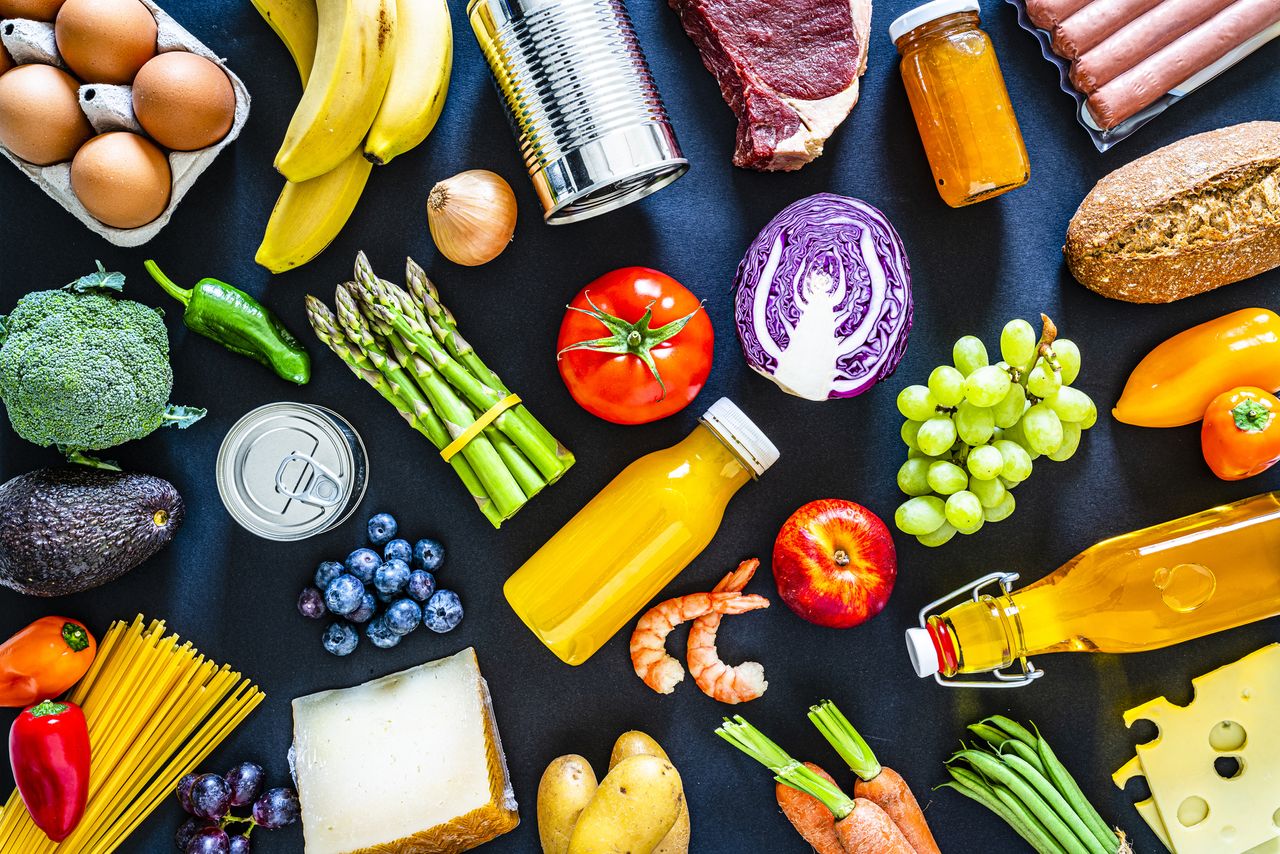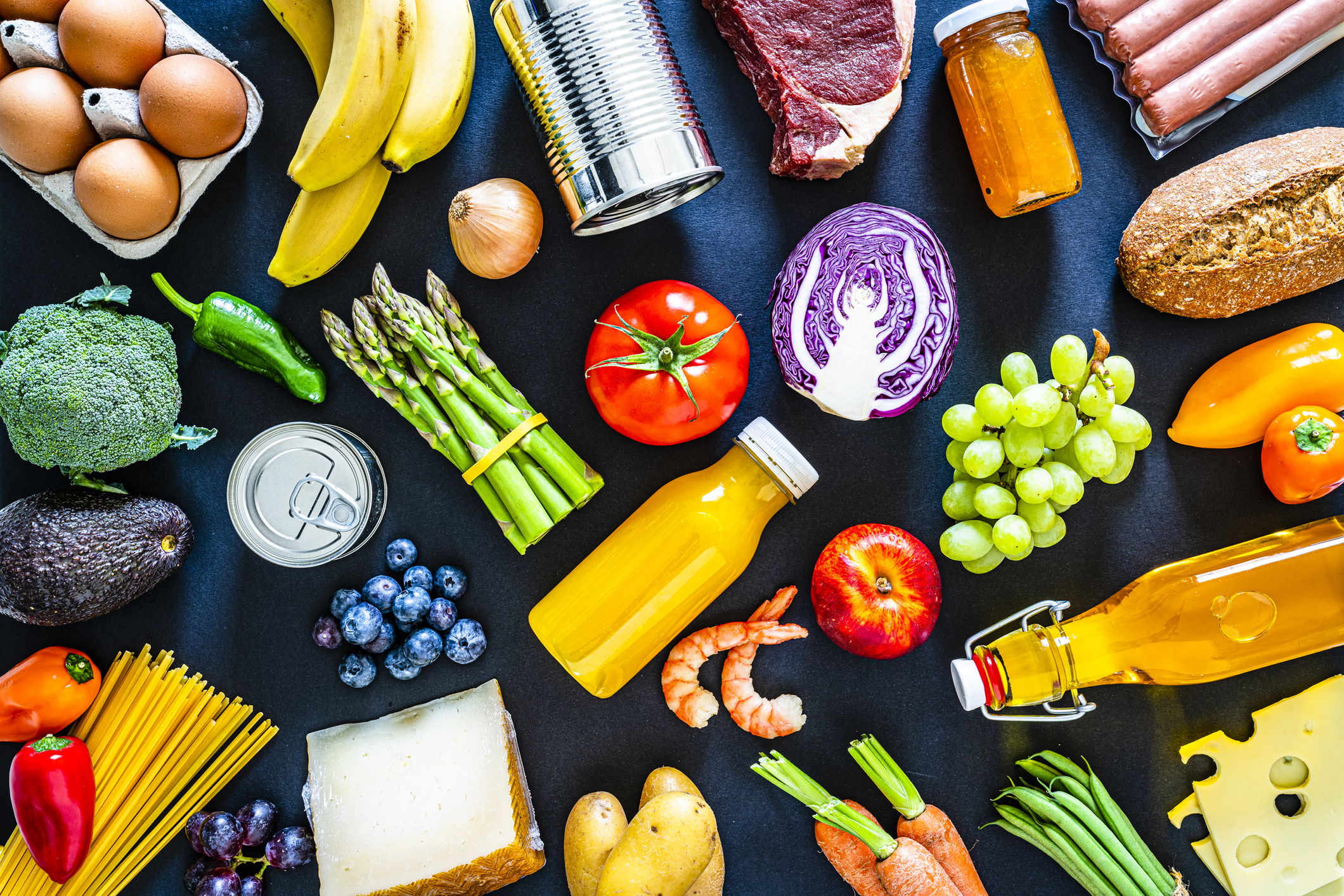
What we eat matters, not just how we feel with each bite, but for our health and longevity, especially what we consume between the ages of 45 and 65. Nutrients can be neuroprotectors, heart helpers, anti-inflammatory agents, even detoxifiers. Eating brings pleasure too, so enjoy. Life is short; we’re just trying to make it last longer.
What to enjoy
Yay, coffee makes the good-for-you list. A recent University of Toronto study found that “women who drank one to three cups of caffeinated coffee per day in their 50s were more likely to age free from major chronic diseases and with good cognitive, physical and mental health,” according to the lead study author Sara Mahdavi. (Skip the sugar. Forget decaf, caffeine is important.) Your morning ritual is safe. Cheers to that.
Egg yolks — the 1990s diet trend of eating egg whites without the yolks was intended to save us from cholesterols, but it turns out that the cholesterol in eggs doesn’t raise levels the way some other foods do. Egg whites are also quite boring. The yolk is where all the good stuff is, especially choline — which contributes to cognitive function. One recent study showed that eating one or two eggs a week is associated with a lower risk of Alzheimer’s and cognitive decline. Yolks also contain lutein and zeaxanthin which may protect against macular degeneration.
Sign up for Kiplinger’s Free Newsletters
Profit and prosper with the best of expert advice on investing, taxes, retirement, personal finance and more – straight to your e-mail.
Profit and prosper with the best of expert advice – straight to your e-mail.
We all know blueberries are great for our guts, but pomegranates and raspberries have also been shown to help the gut microbiome produce Urolithin A, a natural antioxidant that helps with muscle strength, energy levels and anti-aging. Urolithin A clears out damaged mitochondria (a.k.a. mitophagy) which helps cells perform at peak. Many people cannot produce Urolithin A on their own, so supplements of purified Urolithin A may do the trick.
EVOO — that’s extra-virgin olive oil. If you ingest a bit more than a half a tablespoon per day, studies show a 19% lower risk of death. More daily olive oil is associated with lower risk of cardiovascular disease, cancer and neurodegenerative and lung diseases. Replacing butter, margarine, or mayonnaise with EVOO lowers the risk of death by 34%. And yes, cooking with it counts, too, just not at very very high heat; that’s when to use avocado oil instead.
SMASH fish — a.k.a. salmon, mackerel, anchovies, sardines and herring — have the most omega 3 fatty acids (EPA and DHA) which are anti-inflammatory and are good for brain and heart health, reducing the risk of heart disease and stroke. Plus, these swimmers have the least amount of environmental toxins. Always looks for wild-caught varieties instead of farmed because a natural diet is better for them, and for us.
You may have seen mushrooms, such as Lion’s Mane, Chaga or Reishi mushrooms on your instant coffee label or protein bar. Fungi are brain food and it’s suggested we eat them twice a week. Studies show older adults who eat more than two standard portions of mushrooms weekly have 50% less chance of mild cognitive impairment (MCI). Lion’s Mane in particular is being studied for its impact on brain health and shows promise in improving cognitive function and mood.
Go for dark chocolate because not just any chocolate will do. Dark chocolate with more than 70% cocoa contains heart-healthy fats, antioxidants that help fight free radicals, and flavonoids to relax artery walls and ultimately lower blood pressure. Is it caloric? Yes. Is it worth the calories? Definitely.
We can bring back a good old PB&J into our diets. Peanut butter contains mostly unsaturated fats (peanuts are from plants after all) and is a great source of potassium, fiber and protein. Nuts and legumes in general lower cardiovascular risk. Look for brands that list simple ingredients like peanuts — no sugar or extra oils. Or make your own in a blender.
If you can’t get to a farmers’ market to buy what’s in season and grown locally, frozen vegetables hold up surprisingly well. Some varieties contain even higher vitamin content than fresh. “Winter” is no excuse for avoiding a rainbow of fruits and vegetables — organic whenever possible.
What to avoid
A morning glass of OJ may be part of our culture, but did you know that was by design? A surplus of oranges and clever marketing by the California Fruit Growers Exchange (later Sunkist) associated Vitamin C with health (which is true) and even a woman’s ability to attract men (probably not true); the juice became as omnipresent as Wheaties. But orange and many other fruit juices contain as much sugar as soft drinks (skip those too) and lack the fiber of the whole fruit. Blood sugar spikes lead to weight gain and metabolic disorders, which can eventually lead to disease and even death.
A BLT is hard to pass up, but an LT is much healthier. Processed meats, such as bacon, sausage and deli meats, are worse than we thought. (Plant-based artificial “meats” are generally considered ultra-processed foods, too.) A study published in the journal BMC Medicine found that processed meat is associated with a higher risk of coronary heart disease, pneumonia, diverticulitis, colon polyps and diabetes. The World Health Organization has also recommended a reduction of processed meat because of its link to colorectal cancer risk.
Surprisingly, conventionally grown spinach is No. 1 on the Environmental Working Group’s “Dirty List” to avoid because of the amount of pesticides it contains. The group is a nonprofit that works to educate consumers about chemicals in the environment and cosmetics. It found that 75% of non-organic samples were contaminated with the neurotoxic insecticide permethrin (banned on food crops in the European Union), which can interfere with the nervous system. One study found that children with permethrin in their urine were twice as likely to be diagnosed with ADHD. Spinach is packed with nutrients, so just buy organic varieties to avoid pesticides.
Energy drinks are loaded with chemicals, sugar and triple the caffeine in a cup of coffee — and are not monitored by the FDA. According to a Mayo Clinic study, they can even trigger cardiac arrhythmias in patients with genetic heart disease.
The sad news is that alcohol consumption is now officially linked to the risk of seven cancers, including mouth, throat, larynx, esophagus, colorectal, liver and breast cancer (in women). Alcohol damages DNA, increases hormone levels, and causes inflammation. Every year, about 20,000 adults die from alcohol-associated cancers. Many experts say there is no safe threshold to stay under. Luckily, the alcohol-free beverage market is on fire.
The artificial sweetener aspartame is in a lot of diet sodas. Unfortunately, aspartame is converted in the body to phenylalanine and methanol, which can affect the neurochemical state of the brain, causing headaches, convulsions and depression. Stick with a natural sweetener like stevia, or better yet, skip sodas altogether.
Did you know that “cheese spreads” and “cheese products” are not real cheese? They are ultra-processed fake cheeses made with chemicals. Look for these red flags on labels: pasteurized process cheese product, cheese spread, imitation cheese. Fake cheese may include emulsifiers and synthetic food colorings like Yellow 5. Why go fake when there are so many delicious real cheeses that have a positive effect on cognitive health?
Originally a portmanteau of oleum (Latin for olive oil) and Greek margarite (for pearl luster), oleomargarine or margarine is a manufactured concoction designed to replace butter. Manufacturers cannot add artificial trans fats since the FDA partially banned partially hydrogenated oils in 2018, but there are natural trans fats in margarine found in higher amounts than in butter, as well as emulsifiers and artificial colors. Trans fats are associated with an increased mortality risk. A general guideline? Real food is better than fake.
Note: This item first appeared in Kiplinger Retirement Report, our popular monthly periodical that covers key concerns of affluent older Americans who are retired or preparing for retirement. Subscribe for retirement advice that’s right on the money.

